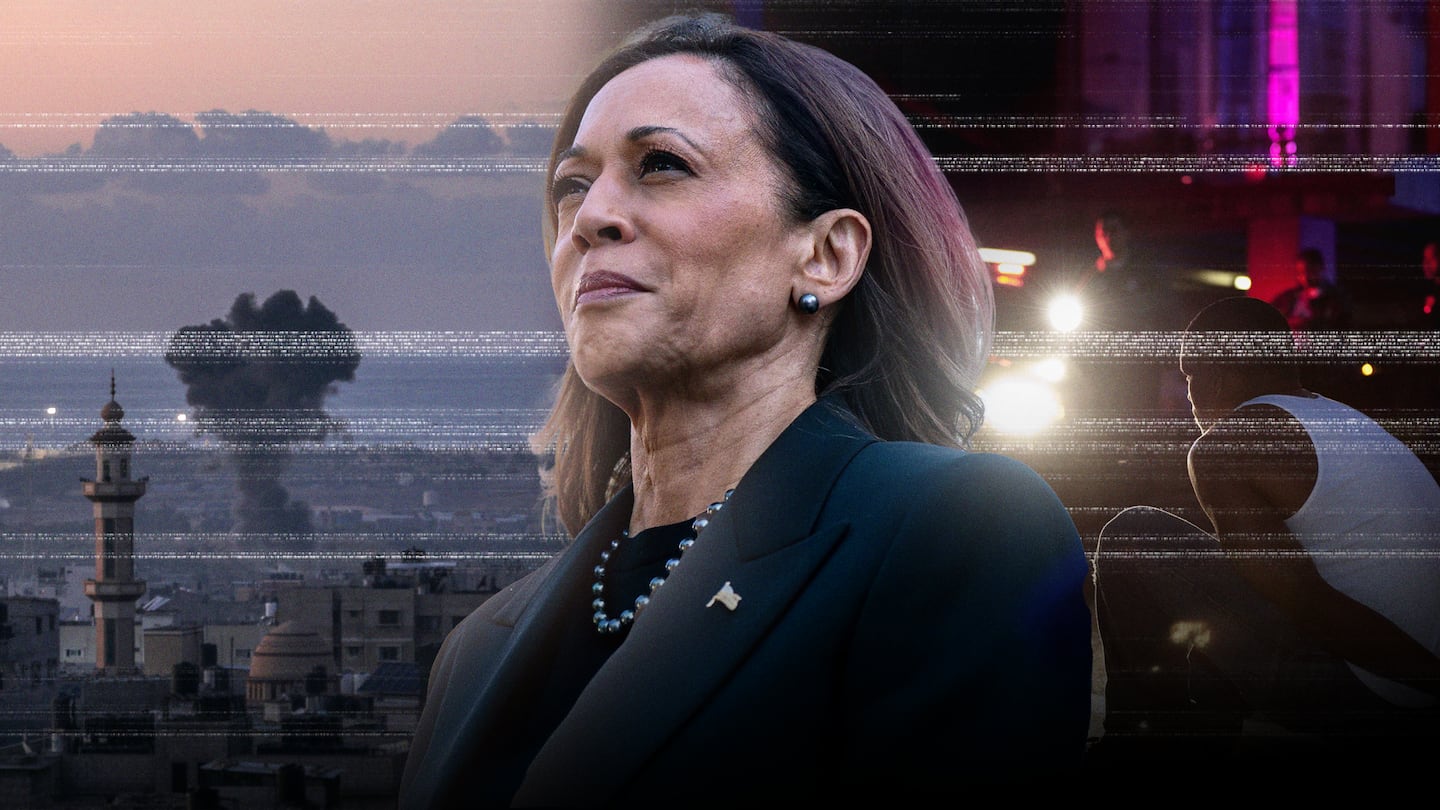A public health educator working in the United States says she would rather have Kamala Harris win the US presidency than Donald Trump - but only by a small margin.
Alex Wilson has worked on community-level interventions around syringe service programs, to eliminate the stigmatisation of substance use.
She is a harm reductionist, meaning she works in prevention programmes that help people with substance use problems to prevent overdoses and deaths, as well as an overall reduction of the impacts of drug use in the community.
In the US and Aotearoa, some people of colour are rooting for Kamala Harris to win the election because she’s a woman of Black and Indian descent and a win would be a triumph for representation.
Given Harris’ history as a prosecutor, Te Ao Māori News interviewed Wilson, a citizen and community worker, who understands the struggles on the ground. Wilson is also described as a ‘black abolitionist’, which means an advocate for investing in social sectors to end conditions that lead to crime, for instance replacing punitive systems with restorative justice that focuses on the rehabilitation of offenders and repairing the harm done to victims.
Wilson asked the question: “What does representation mean when inclusion into these systems just means perpetuating these systems?”
Representation or tokenism?
The aim of representation politics is to have marginalised or classically under-represented groups in positions of power to ensure diverse voices are heard and included in policy and decision-making processes.
New Zealand has two coalition government leaders who are Māori - Winston Peters and David Seymour - but their positions of power by sheer blood quantum doesn’t necessarily equate to political decision-making and policies that benefit Māori.
Although in the past Peters has made significant contributions to Māori such as helping establish kohanga reo, since the current coalition government he is part of has been in power there have been great losses including the disestablishment of Te Aka Whai Ora, the Treaty Principles bill, repealing of section 7aa of the Oranga Tamariki Act, and referendums on Māori wards, to name a few, with six urgent Waitangi Tribunal claims into Tiriti breaches.
Struggles on the ground
Wilson said that despite the fact that a lot of jobs had been created and the economy seemed to be doing “ostensibly well”, a lot of Americans were really struggling all across the country.
Inflation remained a problem, and affordability struggles were seen across housing, rising food costs and childcare.
Te Ao Māori News also spoke to a US citizen from Washington D.C,. who said it was a hard time for working people across the country.
“In the US we’re told that we have a choice between Republicans or Democrats, between Genocide Joe or Fascist Trump but that’s not a choice,” he said.
“In reality, for most working people in the US, we have a choice between paying for another term of school, or going to the doctor, a choice between paying for rent or buying food,” he said. “That’s how much the economic crisis is affecting people’s livelihoods.”
He said the cycle of austerity, and cuts to public goods and services, meant more poverty-related crimes that justified more policing. For instance, Metro (subway) police deployment had been increased to “crack down” on fare evasion where people were jumping over turnstiles to avoid paying for trains.
Wilson said of that, “if you have the money to deploy police, just make the metro free”.
Wilson is from Philadelphia, which has a neighbourhood called Kensington with a large population of homeless people and injection drug users.
Wilson said the mayor had cut harm reduction programmes that helped reduce negative consequences from drug use, and increased police force numbers to push homeless people and sex workers out as a means of “cleaning up the city” without addressing any of the social causes.
These people were pushed into rural parts of surrounding Pennsylvania, which lacked adequate access to resources and harm reduction tools and there were rises in overdose deaths and HIV, Hepatitis C, and other diseases spread through needle-sharing.
Support for the ‘genocide’ alienating voters
As the US government remained steadfast in its support for Israel under a Democrat-led administration, Wilson said the Democrats had alienated young voters who weren’t willing to vote for them.
PBS News has reported that US spent at least $17.9 billion on military aid in the last year since October 7, 2023.
Wilson said while the US didn’t have the money to support Americans living in their country, somehow it had the money to “single-handedly fund Israel to commit genocide”.
In August protestors interrupted a speech by Harris with chants of “Kamala, you can’t hide! We won’t vote for genocide!”
“If you want Donald Trump to win, then say that. Otherwise I’m speaking,” Harris told the protestors.
Wilson said a lot of people thought Harris would “save them” because she was a person of colour but Wilson said they didn’t care if the imperialist happened to look like them, if they were a warmonger.
“I think the genocide is a line in the sand for a lot of people. A lot of people look at her history as a prosecutor and do not feel too proud or motivated that she will be some amazing champion of change for America.”
Kamala the prosecutor
When Harris was a prosecutor in San Francisco, running to be California’s attorney general, her top education priority was to crack down on truancy by prosecuting parents.
If they had a “cop in office”, Wilson said they would expect the carceral state to develop even further. (The carceral state is a term used to speak about one way of organising, distributing, and justifying government power in American society, using the criminal punishment system to achieve its goals.)
“If we have a black woman who might be commander in chief, that’s cool for a lot of people but I think that’s the perpetual argument of whether you can change the system from the inside,” Wilson said.
“I believe [the late US black academic] Audre Lorde that the master’s tools will never dismantle the master’s house.”
Wilson said in the States there was a saying “Vote blue, no matter who” because it was the lesser of two evils.
“A lot of abolitionists like myself would say the lesser of two evils is still, in fact, evil,” Wilson said.
“At what point do we see this electoral system is not a vehicle for achieving liberation or serving people’s interests?"
Wilson said electoral politics wasn’t about representing the individual voice of people because of the electoral college where each state got a number of electoral votes based on their population, and to win a candidate needed 270 electoral votes. For instance, Wyoming had three electoral votes and Texas had 40 electoral votes.
In 2016 Hilary Clinton won the popular vote by nearly 2.9 million votes but lost the electoral college.
Who do you think will win?
Wilson said when Joe Biden was running for president she didn’t think he had a chance, but now she was not sure and was curious to see how it went while preferring Harris to Trump.
“She does have her pulse well on PR,” Wilson said. “She’s doing stuff with the Shade Room, a radio show for young people 18-35 and she will get a lot of votes from people of colour.”
In July, 90,000 Black women and allies logged on at the same time to support her presidential campaign via Zoom, which usually maxed out at 1,000 participants.
An executive at Zoom stepped in to increase capacity to 40,000 and organisers said the meeting was streamed to another 50,000 women on other platforms.
The same month, the “Win With Black Women” group, which included many members of Harris’ sorority (a female group college students join and stay members for many years), Alpha Kappa Alpha, which is part of the ‘Divine 9′ (a group of historical black sororities and fraternities), raised over $1.5 million for Harris’ campaign in just under three hours.
On Monday night, members of the “Win With Black Women” group, which included many members of Harris’ sorority, met on its weekly call and raised over $1.5 million for her campaign in just under three hours.



